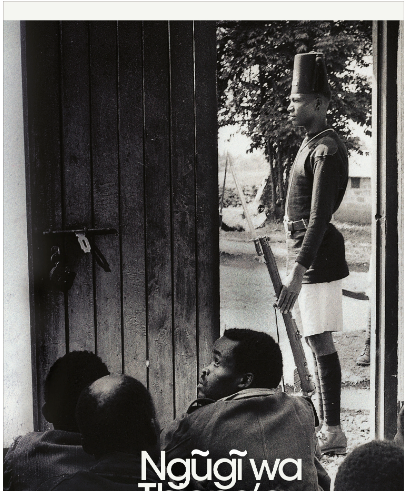
In commemoration of African Union Day, we bring you some great reads from across Africa set around the times when the struggle towards freedom was prevalent on the continent.
- Coming to Birth by Marjorie Oludhe MacGoye

This novel is about a young woman, coming of age at a time of rapid social change in Kenya. The wind of change is blowing through the land as Kenya gains independence and Paulina, only 16, arrives in the city to join her new husband, Martin. A recent arrival in the city himself, Martin straddles the rural and urban divide: his visions of life are often seen through the side-mirror, peering into a past that he lived in the village.
The uncertainty that abounds as Paulina navigates the city’s labyrinth reflects the anxieties that agitate the land. For a while, Martin’s heavy-handedness procures her cooperation, but does not quell her desire for self-reliance and self-discovery.
Paulina’s journey towards freedom appears promising: a short-lived affair produces a child that Martin was unable to sire, and her professional career is blooming. But just as politicians trade away the promises of independence, the nation implodes in a rictus of riots that subsume her private dream.
MacGoye’s vision of Kenya is prophetic and Coming to Birth remains a cautionary tale about this great land, whose promise is saddled with peril, prolonging birth pains of the nation-building project.
- A Grain of Wheat by Ngugi wa Thiong’o

Forming part of the author’s foundational trilogy— Weep Not, Child and The River Between—this novel evaluated what political independence heralded for ordinary citizens in Kenya.
The narrative unfurls in a space of ten days before Independence celebrations in 1963, and captures the anxieties that linger as each group reviews what has been lost, and gained, as black majoritarian rule succeeds colonialism.
Echoes of Kenya’s freedom struggle pulsate through the book, as do the heroic deeds of ordinary folks in defense of their land against the Brits. The dominant narrative is that of Mugo, a hermit that locals mistake for a freedom hero, but who is privately burdened by troubles of his own. His unraveling signals the novel’s denouement.
What’s remarkable about this novel is that its political message does not compromise its artistic sophistication. The characters are complex and well-developed, the storyline unpredictable and absorbing.
- Jazz and Palm Wine by Emmanuel Dongala

This collection of short stories, considered a classic work of African literature by the Congolese writer Emmanuel Dongala, is situated on both sides of the Atlantic. Navigating between Africa and America, from the Communist experiments and ideals that defined the early years of political independence, considerations of the impact of brutal and repressive dictatorships, African mysticism, to the trials and tribulations of African America during the 1960s, framed in a profound fascination for jazz music in which the author finds equilibrium and salvation.
- Harvest of Skulls by Abdourahman A. Waberi

Harvest of Skulls revisits the genocide that took place in Rwanda in 1994 that resulted in more than a million deaths. Franco-Djiboutian author Abdourahman Waberi, one of francophone Africa’s leading voices, visited Burundi and Rwanda on several occasions in the aftermath of the genocide under the aegis of the Writing by Duty of Memory project, an initiative launched by the Fest’Africa Festival. Waberi’s book delivers an original narrative that is at the same time a journey through a turbulent continent.
- Fight for Freedom: Black Resistance and Identity
edited by Tony Talburt, Moussa Traoré

As early as the sixteenth century, when Europeans attempted to systematically exploit Africans, black people have engaged in a variety of organised and sustained resistance campaigns to assert their independence and identity.
This book examines some of the different strategies employed by black people in Africa and the Diaspora in response to European domination and exploitation. Drawing upon research from scholars based at the University of Cape Coast in Ghana and the University of the West Indies, Jamaica, this collection of original essays covers the academic disciplines of African and Caribbean history, literature, politics and psychology.
Sources:
Publishers Weekly
African Books Collective







